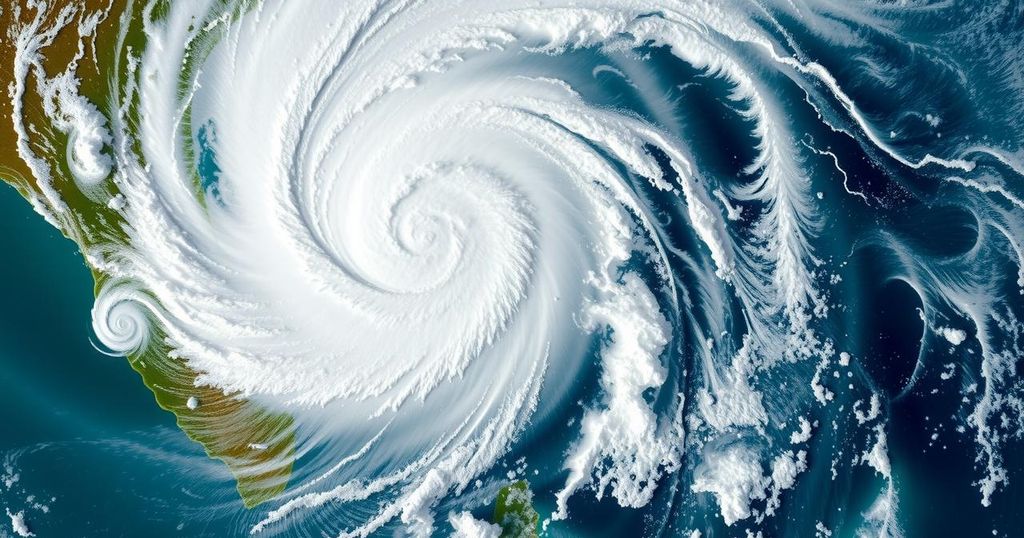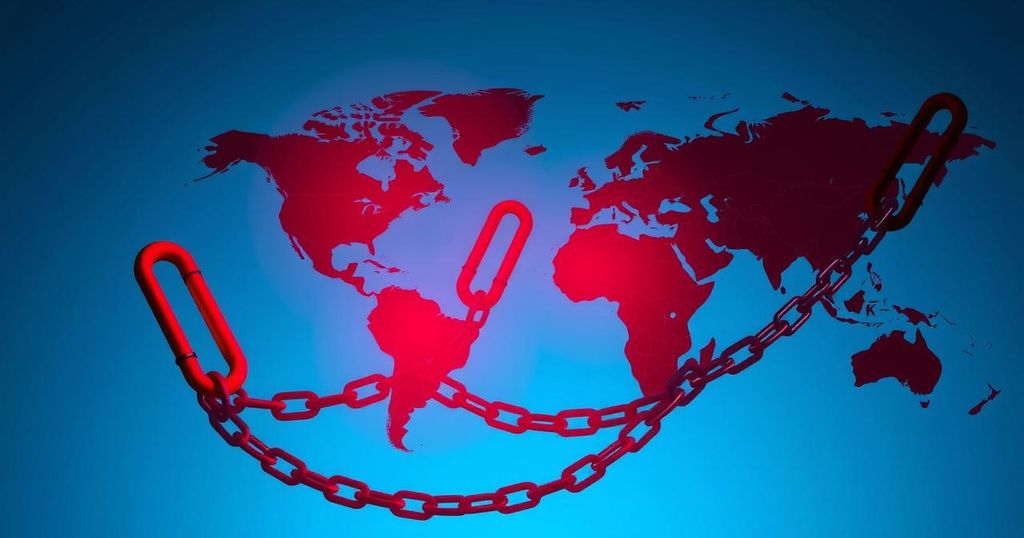World news
AFRICA, ANTSIRANANA, COMOROS, DISASTER MANAGEMENT, EMERGENCY RESPONSE, FLOODING, INAM, LIUPO, MADAGASCAR, MOGINCUAL, MOZAMBIQUE NATIONAL INSTITUTE OF METEOROLOGY, NATURAL DISASTER, NATURAL DISASTERS, UN OCHA, UNITED NATIONS OFFICE FOR THE COORDINATION OF HUMANITARIAN AFFAIRS
Amira Khan
0 Comments
Tropical Cyclone Dikeledi Causes Devastation in Madagascar and Mozambique
Tropical Cyclone Dikeledi, which struck Madagascar causing three fatalities and damage to homes and infrastructure, subsequently impacted Mozambique, leading to severe weather warnings and disruptions. The cyclone’s winds reached 160 km/h (98 mph) as it brushed the Mozambican coast, prompting responses from meteorological authorities and delaying school reopenings.
Tropical Cyclone Dikeledi made landfall in northern Madagascar on January 11, 2025, resulting in at least three fatalities and widespread destruction. The cyclone brought winds reaching up to 155 km/h (96 mph), damaging homes, schools, and critical infrastructure. Following its passage through Madagascar, where over 5,210 individuals were affected, Dikeledi moved on to Mozambique, brushing the coast near Nacala on January 13 with winds escalating to 160 km/h (98 mph). The cyclone led to severe disruptions in Mozambique, prompting the Mozambique National Institute of Meteorology to issue Red cyclone warnings for Nampula and Zambezia provinces, anticipating significant rainfall and flooding. Authorities delayed the reopening of schools and canceled flights in the region as recovery efforts began.
Tropical Cyclone Dikeledi illustrates the severe impact of natural disasters in the Indian Ocean region, particularly affecting Madagascar and Mozambique. Regions like northern Madagascar are often vulnerable to cyclones which can lead to catastrophic human and property losses. The current cyclone follows the devastating effects experienced in Mayotte from Cyclone Chido, underscoring the need for continued monitoring and emergency preparedness. The involvement of national meteorological institutions highlights the necessity of timely warnings to mitigate impacts on affected populations.
In summary, Tropical Cyclone Dikeledi has caused significant devastation in both Madagascar and Mozambique, resulting in loss of life and extensive damage to infrastructure. The event underscores the vulnerability of these regions to tropical cyclones and the importance of preparedness and timely response efforts. As recovery progresses, local authorities are working to ensure the safety and well-being of affected communities while emphasizing the need for ongoing vigilance against future weather events.
Original Source: watchers.news




Post Comment